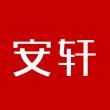
仪器分析(中英对照版)(夏德强)
全新正版 急速发货
¥ 20.2 4.4折 ¥ 46 全新
库存14件
作者夏德强 主编 于娇娇 副主编
出版社化学工业出版社
ISBN9787122417770
出版时间2022-11
装帧平装
开本16开
定价46元
货号29492090
上书时间2024-12-28
- 在售商品 暂无
- 平均发货时间 14小时
- 好评率 暂无
- 最新上架
商品详情
- 品相描述:全新
- 商品描述
-
前言
前 言
总书记于2013年提出了“一带一路”(The Belt and Road,缩写B&R)倡议。“十三五”期间,中国石油和化工企业“走出去”步伐不断加速,中国石化企业市场份额进一步增大,在全球产业链、供应链、价值链中发挥了重要作用。然而,“走出去”企业尤其是石油化工企业的员工本土化培养培训迫切需要相关的教学资源。2021年10月中共中央办公厅、国务院办公厅印发《关于推动现代职业教育高质量发展的意见》,明确提出要通过提升中外合作办学水平、拓展中外合作交流平台、推动职业教育走出去等措施打造中国特色职业教育品牌,推出一批具有国际影响力的专业标准、课程标准、教学资源。基于此,为顺应“走出去”企业人才培养的需要和国家职业教育改革发展的要求,本教材编写组以新修订实施的《中华人民共和国职业教育法》为依据,以科学性、先进性、适用性为目标,突出职业教育类型特色,紧扣实际、力求实用,解构重构了《分析化学》内容,编写了《化学分析》(中英对照版)和《仪器分析》(中英对照版)。
《仪器分析》(中英对照版)共分7章。第1章为绪论,第2章、第3章分别为紫外可见分光光度法和原子吸收分光光度法,第4章为电化学分析法,第5章、第6章分别为气相色谱分析法和高效液相色谱分析法,第7章为石油产品分析。
本书既可作为职业本科院校及高等职业专科学校资源环境、生物化工、食品药品等相关学科或专业的双语教材,也能作为普通本科学校相关专业教材,以及相关“走出去”企业员工本地化培养、“引进来”企业员工培训的教材,还可供其他专业师生及分析检验工作者参考。
本书前6章中英文内容由兰州石化职业技术大学夏德强教授编写,第7章由兰州石化职业技术大学于娇娇副教授和兰州石化职业技术大学汪永丽副教授编写。第7章的英文部分由兰州石化职业技术大学毛建梅翻译。兰州石化职业技术大学郑晓明、李晓婷、于娇娇、汪永丽、代学玉参与了本书有关章节的审核校对、实验实训项目选题及课后习题的编写工作。全书由夏德强统稿并担任主编,于娇娇任副主编,兰州石化职业技术大学甘黎明任主审。
本书的编写参考了大量的相关教材、专著、论文、规范及标准等,尤其是书中部分插图引用了相关的国外教材,在此对本书所引用成果的单位和个人表示衷心感谢。
由于编者的知识和能力水平有限,书中不足之处在所难免,恳请广大师生、读者、专家批评指正,以便今后进一步修订。
夏德强
2022年4月
PREFACE
In 2013, General Secretary Xi Jinping proposed the “The Belt and Road” initiative. During the period of the 13th Five-Year Plan, these companies accelerated the pace of globalization and kept enlarging their market share, so they played a crucial part in industrial chain, supply chain and value chain all over the world. However, the staff in the global-oriented enterprises, especially for those who work in petrochemical industry, urgently needs relevant teaching materials for training. Moreover, in October 2021, General Office of the CPC Central Committee and the General Office of the State Council issued the document entitled Opinions on Promoting the High-quality Development of Modern Vocational Education, where it was clearly stated that a brand of vocational education with Chinese characteristics should be created by promoting Sino-foreign cooperation level in running schools, expanding exchange platforms between China and other countries as well as urging vocational education to go abroad, and then a number of professional curriculum standards and teaching resources with great international influence should be made. In view of the above-mentioned, in order to meet the needs of enterprise talent training and the requirements of the national vocational education reform and development, followed by the Vocational Education Law of the People’s Republic of China, writers and editors compiled the textbook of Chemical Analysis (Chinese-English Edition) & Instrumental Analysis (Chinese-English Edition) with the aims of highlighting vocational education’s features and emphasizing pragmatic under the guide of scientificity, advancement and applicability.
Instrumental Analysis (Chinese-English Edition) is split up into 7 chapters. Certain related methods of instrumental analysis mainly include UV-VIS spectrophotometry, atomic absorption spectrophotometry, electrochemical methods, gas chromatography and liquid chromatography are talked about from chapter 2 to 6; The last chapter covers analysis of petroleum products.
This textbook can be used as a training material both for staff in local petrochemical industry with globalized intention and for employees of foreign enterprises in China. It can also be used as bilingual textbook for biology and chemical engineering, environmental protection and other related majors in Vocational Institutions for Undergraduates, Higher Vocational Colleges and Normal Undergraduate Universities.
The Chinese and English of chapters 1 to 6 were written by Professor Xia Deqiang from Lanzhou Petrochemical University of Vocational Technology. Associate Professor Yu Jiaojiao and Wang Yongli of Lanzhou Petrochemical University of Vocational Technology wrote Chinese of Chapter 7. Mao Jianmei of Lanzhou Petrochemical University of Vocational Technology translated Chapter 7. Xia Deqiang also served as the final editor, compiler and editor-in-chief of the book; Yu Jiaojiao served as deputy editors. Gan Liming, Zheng Xiaoming, Li Xiaoting, Yu Jiaojiao, Wang Yongli and Dai Xueyu participated in the proofreading, selection of experimental training projects and compilation of after-class exercises.
The compilation of this coursebook takes a large number of related textbooks, papers, specifications and standards for reference, and I would like to extend my sincere and heartfelt thanks to the copyholders for generous permission to make use of the pieces here.
Suggestions for improvement will be gratefully received.
Xia Deqiang
2022.04
导语摘要本书是顺应“走出去”企业人才培养的需要和推动现代职业教育高质量发展的要求而编写,体系完整、内容新颖、插图清新、中英文对照、数字资源丰富,既富有普通高等教育的学科特点,又突出了职业教育的类型特征,具有较强的创新性、先进性、实用性。全书重点介绍紫外可见分光光度法、原子吸收分光光度法、电化学分析法、气相色谱分析法、高效液相色谱分析法的基本原理和仪器结构;关于典型工业产品分析方面,主要介绍石油产品分析中所涉及的基本概念及相关指标的测定意义。本书既可作为本专科职业院校资源环境、生物化工、食品药品等相关学科或专业的双语教材,也能作为普通本科学校相关专业教材,以及相关“走出去”企业员工本地化培养或“引进来”企业员工的培训教材,还可供其他专业师生及分析检验工作者参考。
商品简介本书是顺应“走出去”企业人才培养的需要和推动现代职业教育高质量发展的要求而编写,体系完整、内容新颖、插图清新、中英文对照、数字资源丰富,既富有普通高等教育的学科特点,又突出了职业教育的类型特征,具有较强的创新性、先进性、实用性。全书重点介绍紫外可见分光光度法、原子吸收分光光度法、电化学分析法、气相色谱分析法、高效液相色谱分析法的基本原理和仪器结构;关于典型工业产品分析方面,主要介绍石油产品分析中所涉及的基本概念及相关指标的测定意义。本书既可作为本专科职业院校资源环境、生物化工、食品药品等相关学科或专业的双语教材,也能作为普通本科学校相关专业教材,以及相关“走出去”企业员工本地化培养或“引进来”企业员工的培训教材,还可供其他专业师生及分析检验工作者参考。
目录Chapter 1 Introduction 001
Section 1 Classification of Analytical Methods 001
Section 2 Types of Instrumental Methods 007
Section 3 Instruments for Analysis 012
Chapter 2 Ultraviolet and Visible Spectrophotometry 023
Section 1 Introduction 023
Section 2 UV-Vis Spectrophotometer 030
Section 3 Selection of Instrument Measuring Conditions 038
Section 4 Quantitative Analytical Methods of UV-Vis Spectrophotometry 041
Chapter 3 Atomic Absorption Spectrophotometry 051
Section 1 Principle of Atomic Absorption Spectrophotometry 051
Section 2 Atomic Absorption Spectrometer 058
Section 3 Selection of Instrument Measuring Conditions 066
Section 4 Quantitative Analytical Methods of AAS 070
Chapter 4 Electrochemical Methods of Analysis 080
Section 1 Type of Electrochemical Method and Potentiometry 080
Section 2 Types of Potentiometric Electrodes 088
Section 3 Application of Potentiometric Methods 102
Section 4 Coulometric Methods of Analysis 110
Chapter 5 Gas Chromatography 125
Section 1 An Introduction to Chromatography 125
Section 2 Elution Profile (Chromatogram) and Terminology 131
Section 3 Fundamental Theory of Chromatography 137
Section 4 Gas Chromatography 149
Section 5 Chromatographic Detectors 158
Chapter 6 High Performance Liquid Chromatography 172
Section 1 Introduction on HPLC 172
Section 2 High Performance Liquid Chromatograph 176
Section 3 Detectors for HPLC 184
Chapter 7 Analysis of Petroleum Products 199
Section 1 Introduction 199
Section 2 Determination of Basic Physiochemical Properties of Petroleum Products 200
Section 3 Determination of Evaporation of Petroleum Products 208
Section 4 Determination of Cryogenic Flowability of Petroleum Products 212
Section 5 Determination of Combustion Properties of Petroleum Products 214
Section 6 Determination of Corrosive Properties of Petroleum Products 216
Section 7 Determination of Stability of Petroleum Products 219
Section 8 Determination of Impurities in Petroleum Products 221
Reference 227
内容摘要本书是顺应“走出去”企业人才培养的需要和推动现代职业教育高质量发展的要求而编写,体系完整、内容新颖、插图清新、中英文对照、数字资源丰富,既富有普通高等教育的学科特点,又突出了职业教育的类型特征,具有较强的创新性、先进性、实用性。全书重点介绍紫外可见分光光度法、原子吸收分光光度法、电化学分析法、气相色谱分析法、高效液相色谱分析法的基本原理和仪器结构;关于典型工业产品分析方面,主要介绍石油产品分析中所涉及的基本概念及相关指标的测定意义。本书既可作为本专科职业院校资源环境、生物化工、食品药品等相关学科或专业的双语教材,也能作为普通本科学校相关专业教材,以及相关“走出去”企业员工本地化培养或“引进来”企业员工的培训教材,还可供其他专业师生及分析检验工作者参考。
精彩内容《仪器分析》(中英对照版)是一本双语教材,主要分为以下几部分内容:吸光光度法,原子吸收分光光度法,电化学分析法,气相色谱分析法,高效液相色谱分析法,石油产品分析。本教材理论知识与实际生产紧密结合,对理论知识进行了简化,提炼了最为核心的分析方法;对专业词汇进行反复介绍,使学生扎实掌握:对重要实践操作方法在实验中反复操作,使学生在做中学、在学中做,体现出适合高职院校学生学习的特点。
相关推荐
— 没有更多了 —




















以下为对购买帮助不大的评价